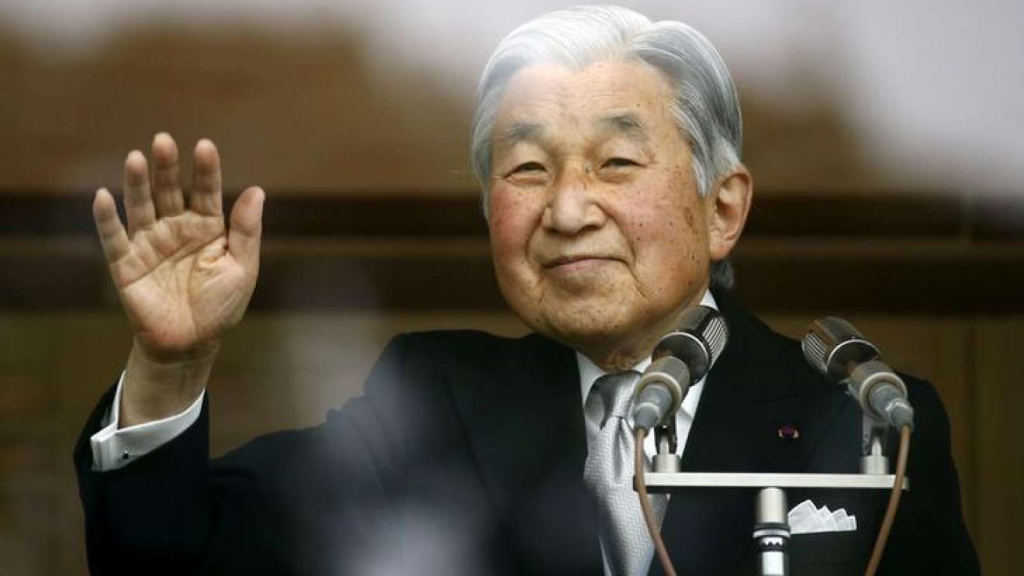-
Tips for becoming a good boxer - November 6, 2020
-
7 expert tips for making your hens night a memorable one - November 6, 2020
-
5 reasons to host your Christmas party on a cruise boat - November 6, 2020
-
What to do when you’re charged with a crime - November 6, 2020
-
Should you get one or multiple dogs? Here’s all you need to know - November 3, 2020
-
A Guide: How to Build Your Very Own Magic Mirror - February 14, 2019
-
Our Top Inspirational Baseball Stars - November 24, 2018
-
Five Tech Tools That Will Help You Turn Your Blog into a Business - November 24, 2018
-
How to Indulge on Vacation without Expanding Your Waist - November 9, 2018
-
5 Strategies for Businesses to Appeal to Today’s Increasingly Mobile-Crazed Customers - November 9, 2018
Japanese emperor addresses abdication speculation
TOKYO-Japanese Emperor Akihito said Monday that ongoing issues of age and health could make it hard for him to carry out his official duties, potentially paving the way for his abdication and the most significant change to the imperial system in the postwar era.
Advertisement
Once revered as a living God, the Japanese emperor became a ceremonial figure in Japan’s constitutional monarchy after World War Two.
“However, when I consider that my fitness level is gradually declining, I am anxious that it may become more hard for me to carry out my duties as the symbol of the state”, Akihito, 82, said in the 10-minute recorded speech broadcast on national television.
However, even in that case the emperor continued to be the emperor till the end of his life, he said.
To mark the 70th anniversary of end of the war a year ago, the emperor delivered a much more conciliatory message than Abe when he said, “Looking back at the past, together with deep remorse over the war, I pray that this tragedy of war will not be repeated, and together with the people express my deep condolences”.
The monarch has reportedly encountered health problems in recent years, and suffered from a bout of influenza earlier this year.
He said he is also concerned that if a reigning emperor becomes seriously ill, it could have an adverse effect on society.
This is the eldest royal line in the world, traced back to 2,600 years.
This is the third time a Japanese emperor has spoken to the public in the television and radio era.
“He’s not allowed to ask a very simple thing, which is, ‘I want the law changed that would allow me to retire, ‘ ” said Michael Cucek, a political science professor at Tokyo’s Temple and Waseda universities.
Akihito spoke obliquely – never mentioning the word abdication and stressing he is legally prevented from commenting on the imperial system – but analysts and media said his intention was clear.
Prime Minister Abe was non-committal in his response to the emperor’s subtle plea to change the imperial succession law.
Emperor Akihito, who succeeded Hirohito in 1989, appeared on TV in a pre-recorded video five days after a catastrophic tsunami killed more than 18,000 people in northeastern Japan.
He has keenly embraced the role of symbolic sovereign and is credited with making efforts to seek reconciliation both at home and overseas over the legacy of the war fought in his father’s name.
The then Crown Prince Akihito married a commoner in 1959, ending a 1,500-year-old tradition.
The imperial household maintains he the “symbol of the state”, as described in Japan’s constitution, which was written by the Allies. Akihito pointed out he was speaking in his personal capacity, and not as the emperor.
August 8, 1:30 a.m.: This article was updated with quotes from Emperor Akihito’s address.
Advertisement
“He’s made it his business to address the unfinished business of his father’s legacy and tried to promote reconciliation through gestures of conciliation and atonement”, said Kingston. With this awareness I was able to carry out the most important duties of the Emperor, to always think of the people and pray for the people, with deep respect and love for the people.





























